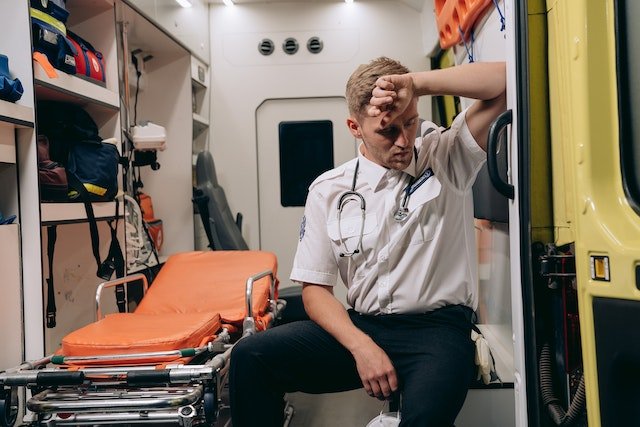Why First Responders are at High Risk for Addiction
What are some of the biggest stressors you have in your day-to-day life? For most people, it's commuting to and from work, caring for a child, a malfunctioning appliance at home, an unexpected deadline, or money problems. What if that stress you already feel also included accidents, violent situations, shootings, abuse, harm, and danger?
First responders do it without batting an eye. It's their job, their career, their chosen path. They signed up to serve and protect. Each day on the job as a first responder comes with high levels of stress and trauma. Think about how you feel after a long day of work. First responders feel it, too. Here's why first responders are at a higher risk for addiction.
Why Does Addiction Happen?
First responders are at a higher risk for addiction compared to people in other career paths. Dealing with injuries, violence, and death can be a lot to handle for anyone. These are unfortunately common occurrences in the role of a first responder. It can be extremely difficult not to bring work, thoughts, feelings, and emotions home with them each night. Individuals with careers as first responders will often turn to alcohol to help them cope and manage their stress. Let's dive a little deeper into why exactly first responders are at a higher risk for addiction.
The Job
Firefighters, police officers, and EMTs are exposed to some type of danger, threat, or violence every single day, sometimes multiple times a day. They never know what to expect during a shift. The job they do isn't something they can plan for beyond the basic training requirements.
On a daily basis, a first responder may see fires, injuries, murders, illness, abuse, and more. The job that they have to do each day means they have to keep going and witnessing these things over and over again.
The Hours
In addition to the role in general, the hours are often long and intense. A day can be very unpredictable, and no two days will look exactly the same. Some of these first responders often work multiple days at a time. This can make it increasingly difficult to care for themselves, even their basic needs.
Normal things like eating healthy and well-balanced meals, aiming for 8 hours of sleep each night, and exercising each day can be hard for these workers to find the time for. On top of that, they often don't have the time or resources to process the events and situations they've witnessed during their shift.
Mental Health Disorders
Regular exposure to traumatic events can make first responders susceptible to mental health disorders. Untreated health disorders can lead to stress disorders, PTSD, or substance abuse. On top of being more vulnerable to developing a stress-related disorder, first responders may have a harder time reaching out for help due to societal and cultural pressures.
Peer Pressure
Drinking is fairly common in the first responder community. Think about it. Typically, in a movie or a TV show, first responders head to a bar after a long day or when their shift ends. First responders often get together and drink socially as part of their culture and as a way to de-stress.
How You Can Help
Suppose you are worried about addiction as a first responder for yourself, a family member, a friend, or a fellow colleague. In that case, seeking help as soon as possible is important, as addiction can worsen some of those symptoms if left untreated. You're not alone if you or a loved one is a first responder struggling with addiction.
Contact me today for a consultation so you can start your path to recovery and healing in substance use disorder counseling.

